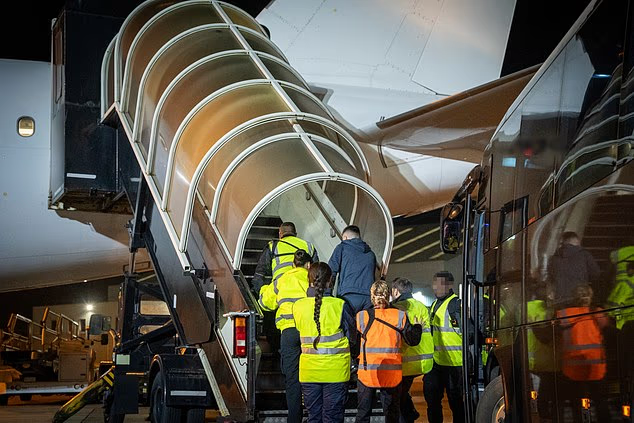In the early hours at a London airport, foreign nationals leaving British prisons are escorted onto flights bound for destinations such as Iraq, India or Vietnam. Many of these men, who have served sentences for offences including drug dealing, sexual assault and theft, are being forcibly removed from the UK under immigration laws.

Because deportations can turn volatile, Home Office security staff are instructed to maintain calm through a combination of firm supervision and welfare measures. Guards provide food, water and toilet breaks during the journey, and in some cases hand out nicotine gum, cards or colouring books to prevent tension from escalating. Some deportees resent these gestures, saying they are not children and simply want to sleep.
The security teams themselves face risks: staff have been spat at, injured and even had teeth knocked out while trying to restrain unwilling passengers. Yet their actions are tightly circumscribed by legal and human-rights requirements. Former employees say they are reprimanded if they fail to offer water regularly or use official terminology such as “residents” rather than “detainees.”

Critics argue that human-rights laws allow people to delay removal for months or years at significant cost to taxpayers.
This week the issue gained fresh attention. Under a new Anglo-French agreement championed by Prime Minister Keir Starmer and President Emmanuel Macron, the UK has begun returning some small-boat arrivals to France on commercial flights. In return, Britain will accept some asylum seekers from France who do not pose a security risk.
However, legal challenges continue to frustrate removals. One Eritrean man who crossed the Channel in March avoided deportation at the last moment when lawyers claimed he had been trafficked and was a victim of modern slavery. A judge granted a temporary injunction preventing his removal for two weeks.

Campaign groups such as Medical Justice say most detainees under the “one-in, one-out” deal are torture or trafficking survivors, and welcome the courts’ interventions. By contrast, Home Secretary Shabana Mahmood accused migrants of exploiting legal loopholes and undermining Britain’s generosity. About half of the 92 people currently in custody under the agreement are expected to raise modern-slavery claims to resist removal.



